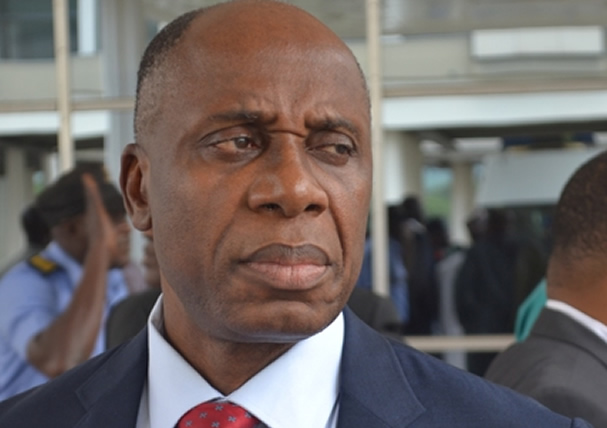A former governor of Rivers State and ex-Minister of Transportation, Rotimi Amaechi, has blamed the National Assembly for enabling what he called a constitutional breach by President Bola Tinubu in the political crisis unfolding in Rivers State.
Speaking at the Akinjide Adeosun Foundation’s 9th Annual Leadership Discourse in Lagos, Amaechi openly criticized the suspension of Governor Siminalayi Fubara, his deputy, and members of the state assembly.
The event’s theme, “Fearless Leadership: A Panacea for Sustainable Development,” set the tone for Amaechi’s comments on governance and constitutional rule.
During his address, Amaechi questioned the idea of courageous leadership in systems that are supposed to function properly.
“Do you agree that there is nothing like a fearless leader and there is nothing like courageous leadership? Do you (Nigerians) need a courageous leader where the system works? Just push the button, and everything will give you the answer,” he stated, suggesting that in well-structured systems, leadership should not rely on personality but on working institutions.
Amaechi said Nigeria’s problem stems from a failed leadership structure and a population that is too passive.
“You can either have a fearless followership or a docile followership. Does Nigeria resonate here as per the docility of followership? Does it resonate here? Yes,” he said. He argued that good governance relies on the constitution, the rule of law, and a clear separation of powers, all of which he believes are lacking.
He directly criticized the role of the National Assembly, describing it as weak and ineffective. According to Amaechi, this weakness made it possible for the president to overstep his constitutional limits by allegedly removing an elected governor and appointing a military officer in Rivers State without consequences.
“What is even more alarming is that the breach in the situation is not even about the law. The president didn’t break any law. He broke the Constitution,” Amaechi said. He continued, “The constitution of a country is the Bible of that country. And its sanctity must be protected.”










